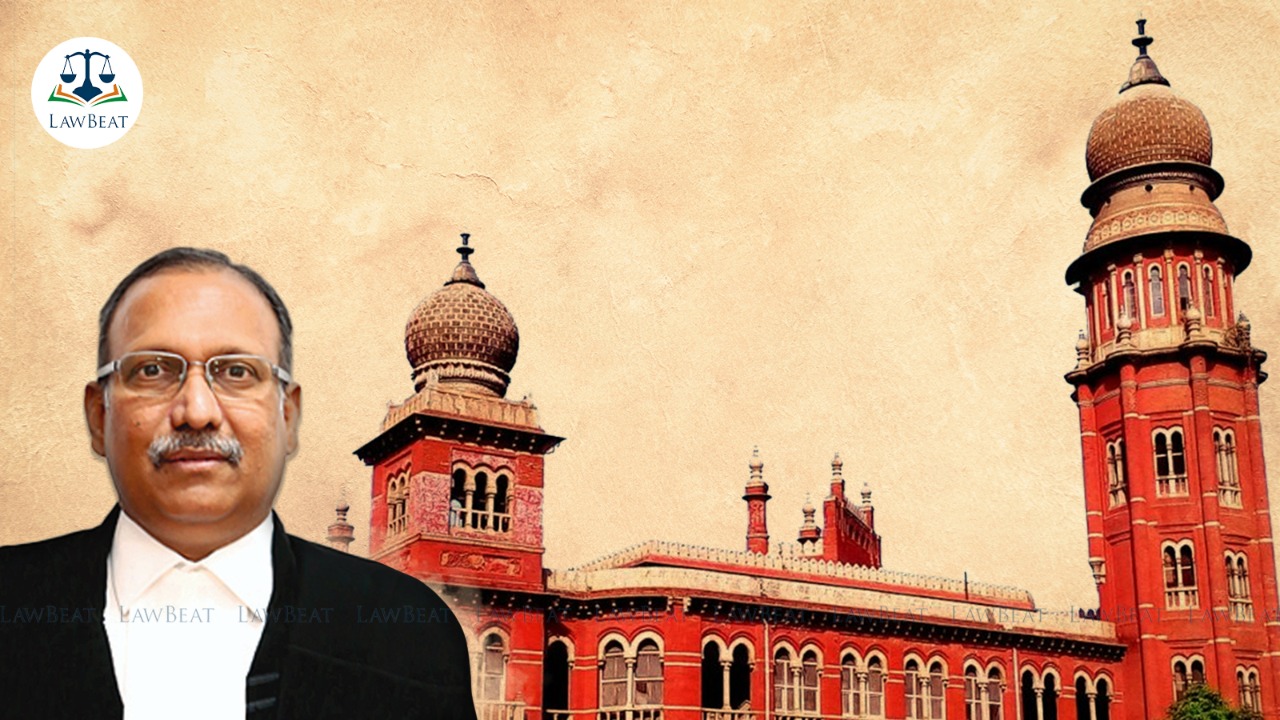"Classic cases of grabbing temple property to earn huge profits": Madras High Court upholds eviction orders

Court opined that the cases at hand were classic cases where under the guise of the membership of a Cooperative Society, the petitioners were attempting to continue in the temple property without any authority to earn huge profts by subletting the property for commercial purposes.
The Madras High Court recently directed District Collector, Kancheepuram to carry out eviction orders pertaining to a temple land passed in 2012 against members of a cooperative society.
Court held that it appeared from the facts of the case that attempts were being made to earn huge profits by grabbing the temple land as the land value in the temple's locality was skyrocketing.
The single judge bench of Justice SM Subramaniam said, "The land grabber's attempt to take away the temple land in any form is intolerable...(Further) Loss of time would result in infringement of the right of a Deity, who is a minor".
The order was passed in a bunch of pleas filed by the members of Kovur Agricultural Cooperative Farms Society challenging the order passed in the year 2012 by the President and Assistant Commissioner, the Revenue Court, Cuddalore evicting the petitioners from the agricultural lands belonging to a temple situated at Kovur, the Suburban of Chennai.
The Kovur Agricultural Cooperative Farms Society entered into a lease agreement with the temple in 1969 according to which, the temple land was to be used by the society's members for agricultural cultivation. However, even after ending of the said lease in 1981, the members of the society, continued to occupy temple's land.
The society was then liquidated and in 2012 after which local revenue court issued eviction orders against the petitioners. Through the said order, the revenue court also directed the petitioners to pay the arrears of rent amounting to Rs 50 lakhs. Being agrrieved by the order of the revenue court, the petitioners moved the high court.
The petitioners claimed that as mandated under the Tamil Nadu Public Trust Act, 1961, they had not been given a fair hearing in the matter.
The pleas were opposed by the respondent parties who argued that the petitioners had no locus standi to invoke the provisions of the Public Trust Act against the temple. They reasoned that the subject property belonged to the temple and there had been no agreement between the temple and the petitioners.
Court opined that since the temple, being a public trust, had entered into a tenancy agreement with the concerned Cooperative Society, therefore, the tenancy agreement could not confer any right to the petitioners to claim the benefit of the lessee or otherwise.
"The rights of the petitioners are to be claimed only against the third respondent-Cooperative Society...The Tamil Nadu Public Trust Act, 1961 has no application in respect of the case of the petitioners," said the court.
Court also rejected the contention of the petitioners that they had been kept in dark and all proceedings were initiated behind their back without their knowledge and also without even issuing or serving any notice to them.
Court said, "The third respondent-Cooperative Society participated in all legal proceedings initiated by the Temple Authorities and even the interim order passed by the Revenue Court to settle the arrears was communicated to the Cooperative Society, which was informed to its members to settle the same in respect of the information passed by the third respondent-Society to its members".
"The arrears of rent have not been settled for several years and the Revenue Court after the lapse of about 11 years has passed an order of eviction against the Cooperative Society, which in turn is liable to evict their own members and handover the subject property to the first respondent-Temple," added the court.
Further, court opined that the matters at hand was classic cases, where under the guise of the membership of the third respondent-Society, the writ petitioners were attempting to continue in the temple property without any authority and in the absence of any tenancy agreement.
"...as per the respondent temple, the petitioners have started subletting the property for commercial purposes and earning huge money for personal gains, which is unjust and illegal," observed the court.
Therefore, while holding that temple was not obligated to issue any notice to the members of the Cooperative Society, court rejected the reliefs as sought by the petitioners.
Moreover, court directed the District Collector, Kancheepuram District to implement the eviction order passed by the Revenue Court in the year 2012 and accordingly carry out the eviction of all the occupants of the temple lands.
Case Title: T.Thanthoni v. Executive Officer, Arulmighu Sundereeswarar Swami Thiru Kovil and Others with connected matters
